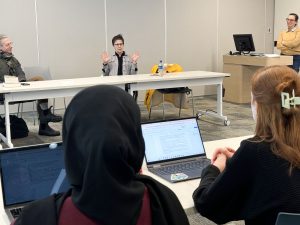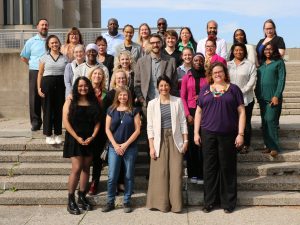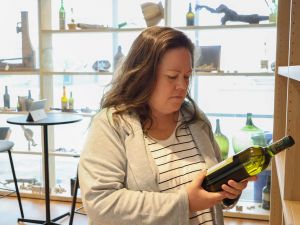Educators and the general public must avoid viewing children from low-income families as lacking, says recent research from the Niagara Community Observatory.
“It may be easy for educators to assign blame to families when their students are not performing in school, or it may be very tempting to lower learning expectations for students,” says Poverty and Education: A Niagara Perspective.

Darlene Ciuffetelli Parker
“The research shows that it is necessary to understand and work towards the more deeply-rooted issues, and all schools need the support to do this,” says the report, written by Faculty of Education associate professor Darlene Ciuffetelli Parker.
Ciuffetelli Parker presented her findings at a forum held in Niagara Falls on Sept. 12. Commenting on the report’s themes was a panel consisting of education and youth officials.
Kelly Gallagher-Mackay, research director for the advocacy group People for Education, said that poverty is increasing across Ontario.
“There are no schools where there isn’t any poverty, but there are a significant number of schools where the levels of poverty are strikingly high,” she told The Brock News.
Gallagher-Mackay said that, when teachers lower their expectations for children living in poverty, it becomes evident in the classroom. She says children living in poverty may not be taught as much material as children from higher income brackets, or might be taught the basics in a rote manner rather than being encouraged to learn through inquiry.
The report says that teachers who received professional development on issues of poverty deepened their understanding of the challenges families living in poverty face.
Also, collaboration amongst parents and teachers in many Niagara schools was improved following this professional development, says the report.
“There are endless possibilities of how we can assist families and their children to be successful,” John Crocco, director of education at the Niagara Catholic District School Board, told The Brock News.
He explained that his board offers a number of programs to do this. There are ‘literacy and numeracy’ nights that teach parents how to help develop their children’s math and reading skills.
There is also ‘snuggle up and read’ sessions, where parents take turns reading to a group of children. There are cooking classes for parents and students, and a ‘green’ recycling and environmental program.
Particularly innovative are recreation and nutrition programs. “After school, come in and use the gym, and, oh, here’s an apple,” said Crocco. “On top of exercising, the kids learn about nutrition.”
In Niagara, more than 5,400 children live in poverty, with several schools being characterized as being ‘high risk.’ In Ontario, 148,000 children rely on food banks. One in seven children live in poverty in Ontario, which rises to one in four for Aboriginal children living in extreme poverty.










